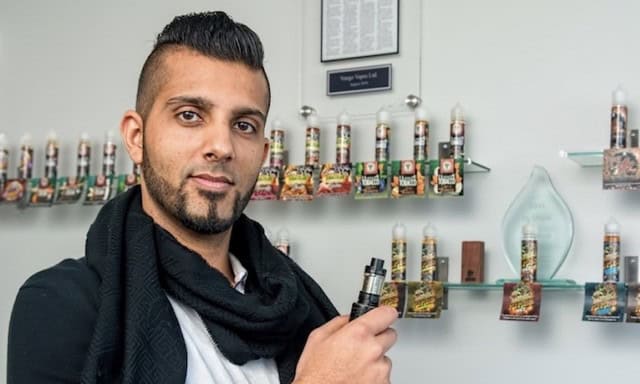
Black market could benefit from clampdown on vape products
The black market could be the big winner if the B.C. government follows through with plans to levy a 20 per cent tax on all vape-related products, restrict access to those products and add deterrents such as mandated plain packaging.
A resurgent underground economy would keep the government from cashing in on the consumer trend toward vaping tobacco and cannabis instead of smoking those substances. It could also, say critics, put public heath at risk as people seek cheaper, unregulated products.
Established retailers and manufacturers could also see their businesses teeter if Health Minister Adrian Dix follows through on his vow to restrict sales of flavoured nicotine vape products to age-restricted stores, lower the maximum threshold of nicotine to 20 milligrams per millilitre and put in place new rules for plain packaging by April.
In addition to thousands of convenience stores and grocery stores, 150 specialized stores sell nicotine-based vape products in B.C., according to government figures. The province is also home to e-juice manufacturers, such as Premium Labs, Indulgence Innovations Inc. and VanGo Vapes.
“The vape economy in B.C. will potentially take a hit because you can go online and order from Alberta,” said VanGo Vapes CEO Saadiq Daya.
“If you order from Alberta, you’re paying five per cent GST. Here, you are going to pay 25 per cent” in provincial and federal taxes.
E-juices on sale in Alberta often have nicotine concentrations two to three times higher than what will be allowed in B.C.
The new regulations were inspired by 11 confirmed or probable cases of severe lung illness related to vaping in Canada, and about 2,290 cases of severe lung illness related to vaping reported in the U.S., in addition to a reported 47 deaths.
Daya believes those cases stem from vaping concentrate formulations, not federally approved in Canada or the U.S., that include THC and additives.
He said that the hospitalizations do not stem from vaping nicotine e-juice because the U.S. Centers for Disease Control and Prevention in early November said vitamin E acetate is a “very strong culprit” in recent vaping-related health problems. It based that conclusion on a study of samples taken from the lungs of 29 patients, including two who died.
Vitamin E acetate, Daya said, is used only in cannabis concentrates because it is a sticky and thick additive that would not synthesize well in nicotine-based e-juice. His thinner e-juice is about 70 per cent vegetable glycerin, with nicotine and food flavours added in the form of concentrated propylene glycol.
Scientists at Health Canada-licensed cannabis-testing laboratories told BIV that while vitamin E acetate could be used as an additive in THC-laced vape concentrates, it is unnecessary, and will be strictly banned from legal concentrates once those start appearing on store shelves in late December or next year.
“If concentrates are coming from the black market, you have no idea what’s in it, and that goes for both tobacco and cannabis,” said Ryan Pincura, operations manager at Kelowna-based Zenalytic Laboratories.
He warned that health issues could also arise from black-market vaping devices that incinerate, instead of vaporize, and cause carbon to be inhaled.


